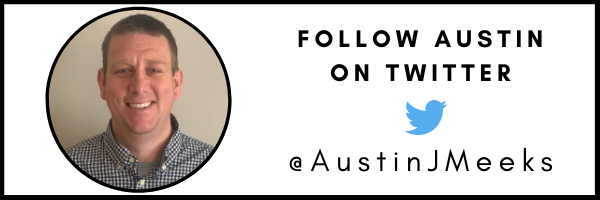TL;DR:
- Educators can learn from other careers, such as finance, to navigate challenging times.
- Celebrate small successes and realize that everything is connected. Success in one area will flow into others.
- Focus on using research-based practices within your classroom.
- Don’t wait to try something new.
- Use data to inform what you’re doing within your classroom.
Learn from finance.
Educators are experiencing more volatility in their profession than they’ve ever seen. Fortunately, we can draw upon lessons from the world of finance to help us continue our impact on students in both turbulent and smooth-sailing times.
These are the seven lessons you will want to apply to your life as an educator.
Your savings rate is the number one predictor of wealth accumulation in the personal finance world. Your focus on best practices is the number one indicator of student growth in your school or classroom. Share on XSmall wins and successes compound over time.
Acknowledge and celebrate the tiniest of successes with students and colleagues, especially when the “big data” isn’t where we want it to be. Best practices are interconnected and progress in one area will surely create growth in another.
Maintain a process-oriented approach.
Your savings rate is the number one predictor of wealth accumulation in the personal finance world. Your focus on best practices is the number one indicator of student growth in your school or classroom.
Prioritize action.
The best time to invest was ten years ago. The next best time to invest is today. If you’ve always wanted to try something, start by trying it once to test the waters.
Data-informed > data-driven.
When investing, bear markets should cause us to reflect and assess our risk tolerance but not sell the farm. Educators should use data to reflect, spot trends, and make tweaks before starting from scratch.
Utilize “street data.”
Not everything that counts can be counted. Generate a habit of recording observations of growth in yourself and your students. Like investing, impacting student achievement is a long game. These observations and anecdotes will keep you in the game while we wait for the lagging indicators to roll in.
Embrace risk.
You can’t retire on interest earned in a traditional savings account. You won’t grow into the educator you want to be without trying new things. Best practices will continue to adjust and improve over time, in large part due to educators being willing to try new things.
Threats incentivize solutions in equal magnitude.
The following quote from Morgan Housel’s book Psychology of Money is relevant to what we are experiencing in education today.
“Assuming that something will stay ugly is an easy forecast to make. And it’s persuasive, because it doesn’t require imagining the world changing. But problems correct and people adapt. Threats incentivize solutions in equal magnitude. That’s a common plot of economic history that is too easily forgotten by pessimists who forecast in straight lines.”
There are undoubtedly many things in education right now that are “ugly.” The solutions won’t appear overnight, but they will arrive in great magnitude. Stay the course.
[scroll down to keep reading]
Conclusion
We talk a great deal in education about embracing a growth mindset and believing skills and knowledge will improve over time. People choose to invest because they believe their money will grow over time. Investing teaches us patience and the steps needed to maintain that patience over time. Many may link the current state of education with a bear market right now. We’ve learned from investing to stay the course, focus on your process, and believe that better days are ahead.
About Austin Meeks
Austin Meeks currently serves as an induction coach, mentoring and coaching PK-12 teachers new to the field. In addition to working with beginning teachers, Austin also leads professional learning for coaches that serve in the consortium. He has previous experiences as a classroom teacher, model teacher, MTSS building facilitator, and substitute building administrator. Austin enjoys making connections between his PK-12 experiences as a teacher, administrator, and coach with his professional learning to generate ideas that create lasting systemic changes in education.


